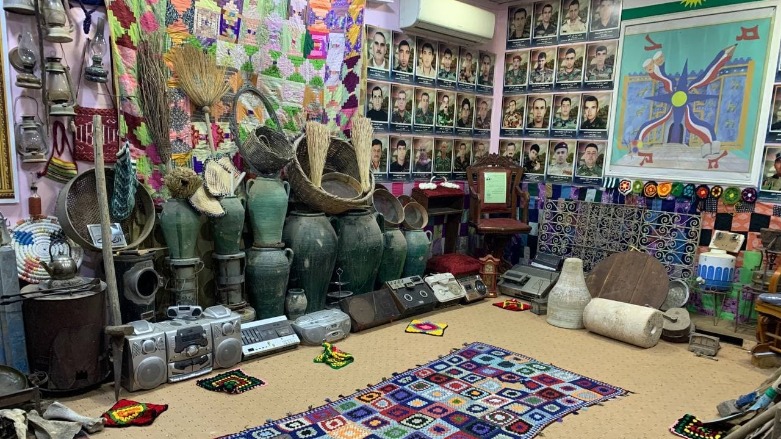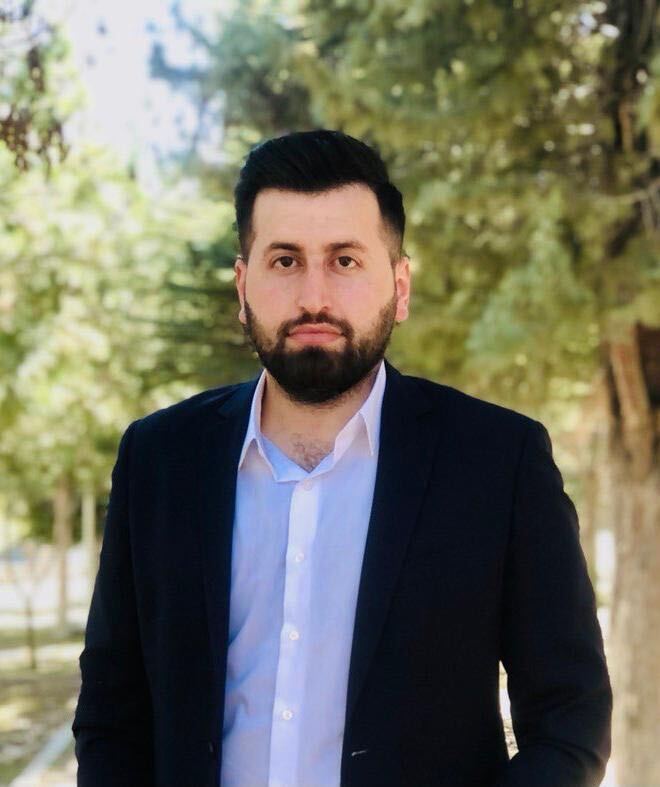Christian cultural center preserves history, coexistence in Zakho

Inside a Christian-majority neighborhood in the Kurdistan Region city of Zakho, a cultural center has been promoting and preserving the shared history and lives of different groups of people in the area.
Upon entering the Nassara neighborhood, one notices a harmony between the life of old and a new, multicultural era. And the Ishtar cultural center best represents that. Moreover, the group ensures all events it organizes include all components of the local community.
Ishtar's main office building attracts many visitors with a hall that houses 357 historical and cultural items. While most of the pieces illustrate Christian history in Zakho, some are exclusive to the Kurdish past, pointing to the long and peaceful history of coexistence in Zakho.
The idea for displaying the growing collection of preserved items came from Ameen Essa, the founder and manager of Ishtar. He recently showed Kurdistan 24 an over 120-year-old chair that belonged to Zakho's first bishop.

Bishop Mar Timothy Makdisi was born in 1848 in Alqosh. When he became bishop of Zakho in 1892, he moved to live in the city to develop closer ties with the local Christian community and authorities. He passed away there in 1929.
Another piece of history Ishtar keeps is a chair that is from 1939 when residents of the nearby Sinat village had one made for the visiting king of Iraqi, Ghazi bin Faisal with the help of carpenter Matti Abdul-Ahad. The chair is still in good condition.
The collection of antiquities includes a pot that is well over 200 years old that was found in the home of Hazim Beg, an Iraqi Kurdish official from Zakho who lived in the 1900s. The piece was collected recently when his house was renovated.

Ameen Essa lamented the fact that because of the Saddam regime's systematic destruction of Kurdish and Christian villages, many priceless pieces representing the rich history of the Kurdistan Region were lost.
Essa himself has been trying to collect whatever he can and have them on display for everyone, especially the younger generations. He affirmed the importance of the youth understanding their ancestral history and culture.
Despite the financial challenges faced in recent years by the Kurdistan Regional Government (KRG), which offers funding to Ishtar, the center has persevered.

As ISIS overran a third of Iraq in 2014, many Christians left the country for good, but some found refuge in Kurdistan. Zakho's Nassara neighborhood has been a haven for members of the community fleeing violence elsewhere in Iraq.
Despite the hardships, Christian communities in the region have organized thousands of activities and campaigns, offering training to help keep the youth from leaving the country, Essa explained.
He has also decorated the walls of the cultural center with photos of Peshmerga fighters who died defending Kurdistan, including Christians from Zakho.
